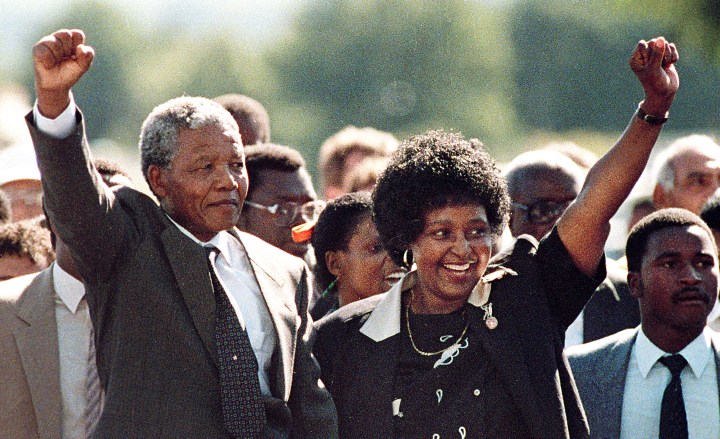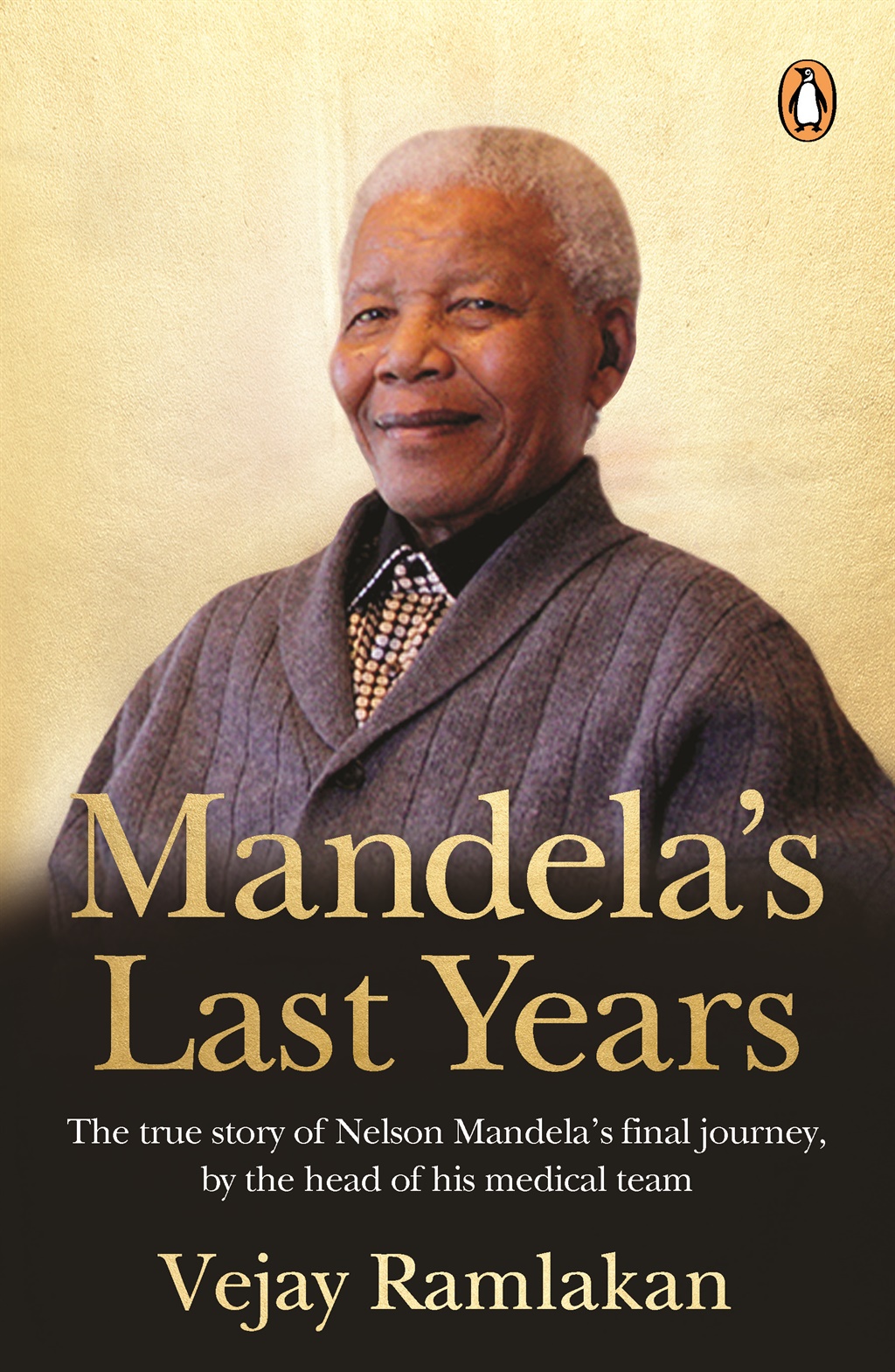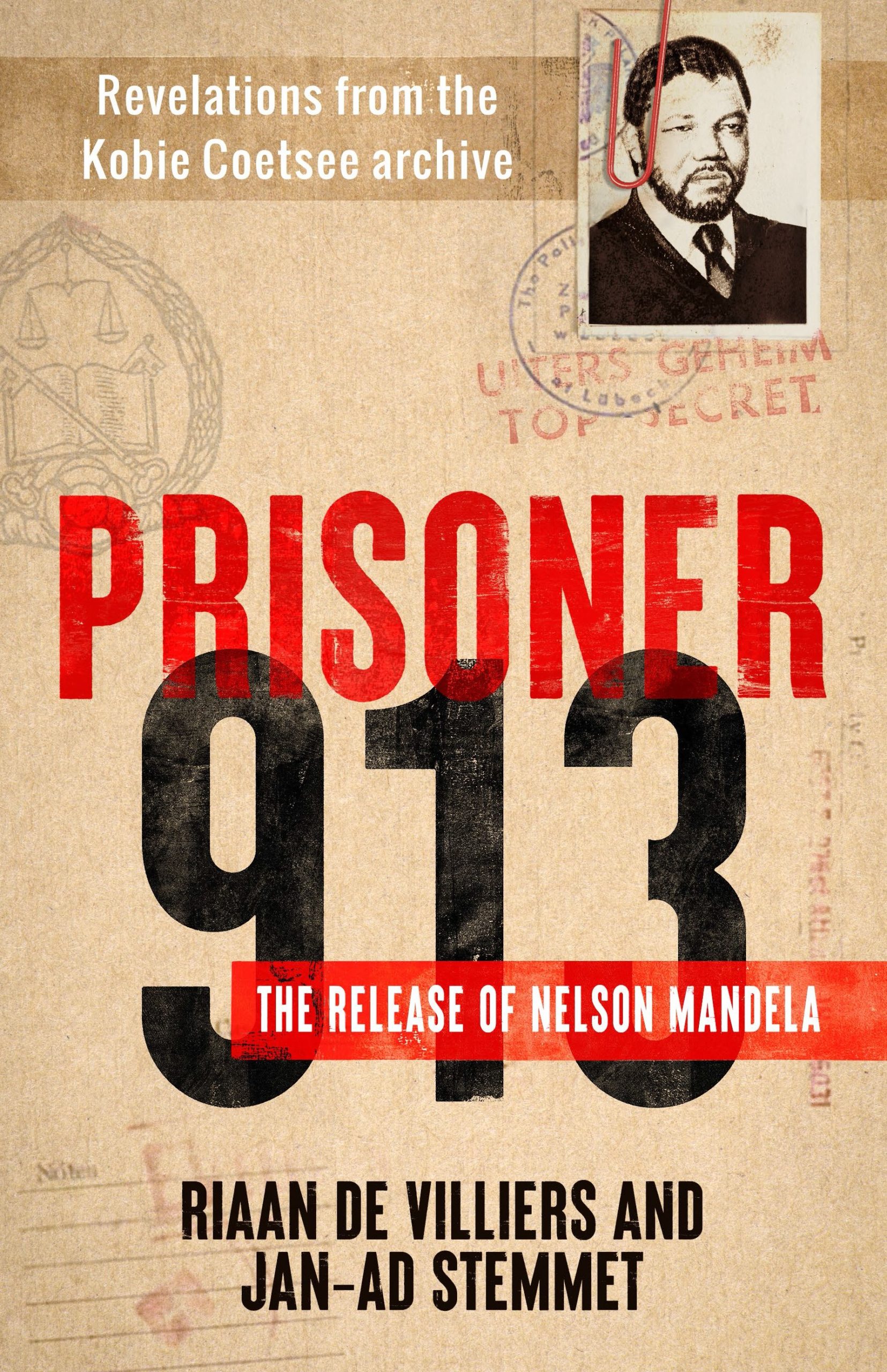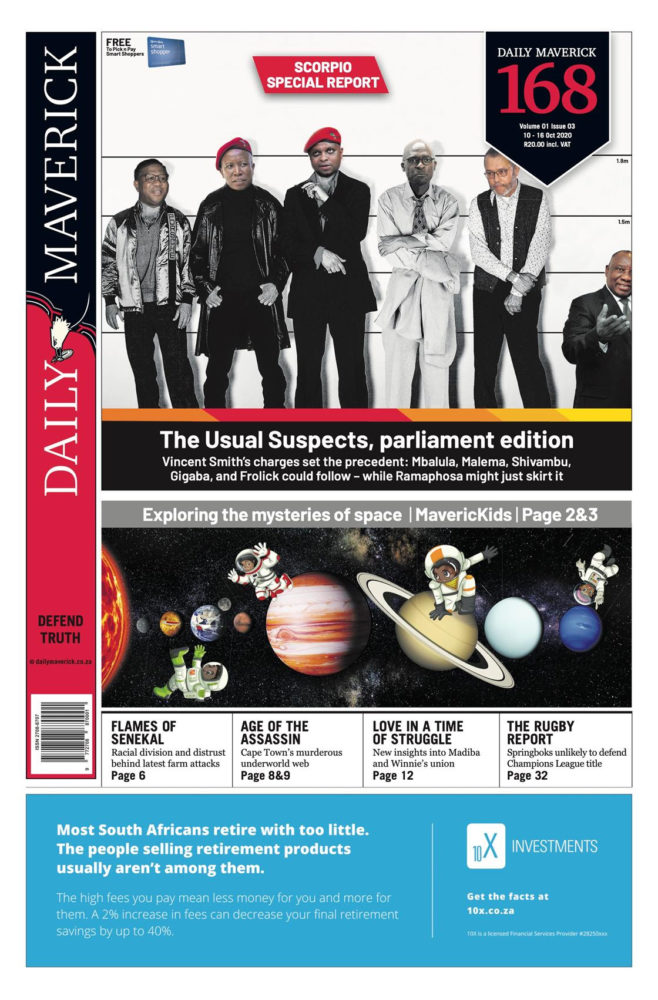DAILY MAVERICK 168
Two new books offer an insider’s view of Nelson & Winnie’s tempestuous yet enduring love

The shattering personal cost of political currents on the tempestuous but enduring love affair between Nelson and Winnie Mandela, two of the world’s most prominent 20th–century revolutionaries, has been further highlighted in two works on the late South African statesman.
First published in Daily Maverick 168
Let’s begin with the first. It is a description of the last hours in the life of Nelson Mandela as set out by Vejay Ramlakan, head of Mandela’s medical team, in his book Mandela’s Last Years, published in 2017 and withdrawn at the threat of legal action.
Ramlakan, who died in August 2020, describes how, apart from his medical team, only Winnie Mandela remained at her former husband’s bedside when the monitors recording Mandela’s fading life source finally fell silent at 21.48 on 5 December 2013.
It was Winnie who held his hand as her great love exhaled his last breath, and who sobbed “as she nestled her head beside Madiba’s still body”, according to Ramlakan.
The second revelation is more searing. It appears in a surveilled conversation between Mandela, his daughter Zenani and her husband Prince Thumbumuzi Dlamini on 1 September 1989 in the house at Victor Verster Prison, Paarl, to which Mandela had been transferred in 1988. Zenani and Muzi lived in the US and visited Mandela on a trip to South Africa. According to a letter accompanying the transcript of the conversation, Mandela had been keen to remove Zindzi from the “corrupting influence” of her mother, Winnie. The conversation is related in Prisoner 913 – The Release of Nelson Mandela by Riaan De Villiers and historian Jan–Ad Stemmet, based on the “private archive” of former apartheid justice minister Kobie Coetsee, who played a role in the National Party’s bids to talk to the ANC about a negotiated settlement for South Africa.
The excavation of this part of Coetsee’s archive offers significant insights into the behind–the–scenes delicate dance between PW Botha, the Nationalist government, its senior leaders, Mandela, other incarcerated senior leaders and ANC leadership in exile.
But for now what is relevant is the conversation between a father and his daughter and her husband about his wife, in the heat of a brutal and, at times, covert, civil war in South Africa in the mid- to late 1980s.
Winnie had risen as a leader in her own right, a thorn in the side of the apartheid state; the “other” Mandela who became one of the global faces of the anti–apartheid movement. That she was targeted by agents of the state using dirty tricks and that her life was violently disrupted in every way is part of the physical, emotional and mental landscape Winnie Mandela needed to navigate.
By the time Zenani visited her father in jail in 1989, Winnie had spent 491 days in solitary confinement. There she was beaten and tortured, as recorded in her harrowing biography, 491 Days: Prisoner Number 1323/69. Later she was “banned” and banished with her two daughters to Brandfort, Free State, before being drawn into the resistance to apartheid in the 1980s.
Nelson Mandela had been a prisoner for 27 years when Zenani visited in 1989. To the Nationalist government he was Prisoner 913.
It is in this recorded conversation that Mandela reveals an apparently long–held belief that it was Winnie who had betrayed him and disclosed his location before his arrest in 1962. It is a shattering charge.
We learn that author, activist and journalist Mary Benson provided information to Mandela in 1962, when he visited her in London, that Winnie had been involved in an extramarital affair while Mandela had been on the run, receiving training in Africa before heading to London.
On his return, he was arrested.
Somewhere between 1962 and 1989, Mandela believed that because of these affairs his whereabouts in South Africa became known and he was arrested at a road block in Howick in August 1962. In the conversation, Mandela is recorded as raising this belief. He knew he was being monitored and his jailers transcribed, keeping records and hand–written notes of each conversation.
De Villiers and Stemmet reveal this conversation was marked “confidential” and sent to Coetsee with a covering letter in which then Commissioner of Prisons, General Willie Willemse, sets out his opinions on what the conversation was about and what it might mean.
“Herewith a significant document which airs in some detail a large piece of bitterness, resentment and frustration which client has harboured towards his wife over many years and he can do little about it.”
Willemse opines that “it appears as if things are now moving to some sort of conclusion. She pays him no heed, for numerous reasons, among which certain physical needs must apparently not be discounted.”

The authors debated the ethics of making personal moments in Mandela’s life public, deciding he had made available an archive of personal material for public scrutiny.
The Mandela–Zenani conversation is retold by Willemse and other prison officials, so we do not hear Mandela in his own words, only how he was overheard.
“913 says he went underground. 913 says he was in London with Mary Benson, and she had told him that Winnie had attended a concert with a married man. 913 says she also had relationships with other men.”
“913 says it was clear to him that the police knew he was in Durban. 913 says Winnie had spoken about where he was. She (W) had told this to someone with whom she had an intimate relationship.”
This person, Mandela is reported as saying, had wanted both Winnie and Nelson arrested. Winnie, writes Willemse, “was arrested and she had said where 913’s comrades were”.
They divorced in 1996, but Winnie remained a presence in his life, visiting him in hospital later in life and after he had married Graça Machel.
It suggests Mandela had come to terms with a sense of deep betrayal.
Did he believe it? Certainly. Was it true? Probably. Winnie led her own life with her husband on the run. Did Mandela cast Winnie as having betrayed him politically? Mandela was silent on this.
In the end it was Winnie alone who was with Mandela when he died and who bade farewell to a life partner with whom she had shared South Africa in all its wretchedness and resilience.
As Sisonke Msimang writes in The Resurrection of Winnie Mandela, Winnie needs to be placed in a wider context to understand her legacy.
“The trick perhaps is not to debate whether Winnie was ‘good’ or ‘bad’ (whatever those terms even mean). Removing her from the binaries to which women are often consigned rescues her from cliché, and spares us a tired and unproductive discussion.
“Winnie does not need to be either this or that. Instead, redeeming Winnie – thinking about what she teaches us – is to consider what she meant to our society and, in a particular way, how she embodied popular ideas of strength and resilience.”
The personal cost was great, the healing might never have come completely, but their love story stands as a testimony to the vulgarity and glory of the times. DM168


















 Become an Insider
Become an Insider
Comments - Please login in order to comment.